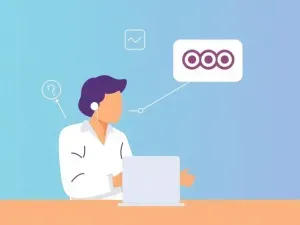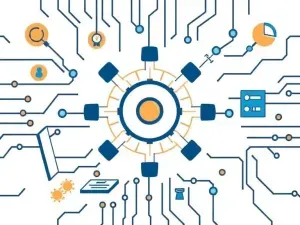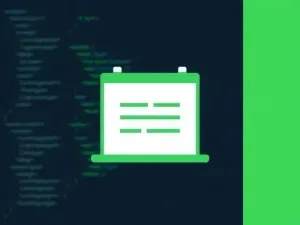Introduction to Electronic Invoicing
In today’s business landscape, digitalization is fundamental. One of the most important transformations in recent years has been the adoption of electronic invoicing. But, what exactly is electronic invoicing? Essentially, it’s the issuance, sending, receiving, and storage of invoices and other tax documents in digital format, using electronic means. This replaces the traditional paper invoicing process, offering a range of benefits for both companies and the tax administration.
Electronic invoicing isn’t simply a digitization of the invoice; it involves a structured and verified process that guarantees the authenticity and integrity of the information. This process is based on specific technical standards and validation by the National Tax and Customs Directorate (DIAN).
Legal Obligation in Colombia
The DIAN has established electronic invoicing as the standard method for invoicing in Colombia. This obligation has been implemented gradually, according to the category of taxpayers. While initially applicable to large taxpayers and those participating in public contracts, the obligation has been extended to cover most companies and individuals who carry out activities subject to VAT.
The main regulation governing electronic invoicing in Colombia is Resolution 042 of 2020, issued by the DIAN. This resolution establishes the technical requirements, file formats, validation processes, and obligations of issuers and recipients of electronic invoices. It is crucial that companies understand and comply with this resolution to avoid sanctions and ensure their tax compliance. Non-compliance may result in significant fines.
Advantages of Electronic Invoicing for Companies
Migrating to electronic invoicing offers a wide range of benefits that can positively impact a company’s efficiency and profitability. Here, we break down the most important advantages:
-
Reduced Operational Costs: Eliminating the need to print, store, and send paper invoices generates significant savings in paper, printing, postal shipping, and physical storage space costs. Additionally, costs associated with managing lost or damaged documents are reduced.
-
Agility in Accounting and Tax Processes: Electronic invoicing automates many of the manual processes associated with invoice management. Information is transmitted directly to accounting and tax systems, reducing the time spent on data entry, reconciliation, and report generation.
-
Lower Risk of Loss or Forgery: As a digital document duly validated by the DIAN, the electronic invoice is much more secure than a paper invoice. Information is protected against alteration and loss, and the traceability of the transaction is guaranteed.
-
Improved Traceability and Tax Compliance: Each electronic invoice has a Unique Electronic Invoice Code (CUFE), which allows it to be tracked throughout its lifecycle. The DIAN has access to this information, facilitating auditing and reducing the risk of errors or inconsistencies in tax returns. This also allows for better organization of information, facilitating audits and reviews by tax authorities.
-
Improved Customer Relationship: The ability to send invoices instantly and digitally enhances the customer experience. It facilitates access to information about their purchases and allows them to better control their expenses.
Key Technical and Regulatory Aspects
To implement electronic invoicing in Colombia, it is fundamental to understand the key technical and regulatory aspects required by the DIAN.
-
Basic Requirements:
- Enablement: The company must be enabled by the DIAN as an issuer of electronic invoices. This process involves registration with the DIAN system and configuration of the necessary parameters.
- Software: Electronic invoicing software is required that meets the DIAN’s technical requirements. This software must be able to generate invoices in XML format, digitally sign them, and send them to the DIAN for validation.
- Digital Signature: The digital signature is essential to guarantee the authenticity and integrity of electronic invoices. The company must obtain a digital certificate from a certifying entity authorized by the DIAN.
- Storage: Electronic invoices must be stored securely and accessibly for the legally established period, generally five years.
-
XML Formats: The DIAN requires that electronic invoices be generated in XML (eXtensible Markup Language) format. This format allows the invoice information to be structured in a standardized way, facilitating automatic processing. The DIAN provides a specific XML schema that must be followed when generating invoices.
-
CUFE Code: The Unique Electronic Invoice Code (CUFE) is an alphanumeric code that uniquely identifies each electronic invoice. This code is generated from the information contained in the invoice and the private key of the issuer’s digital certificate. The CUFE allows verifying the authenticity of the invoice and tracing its origin.
-
Resolution 042 of 2020 and Other Resolutions: Resolution 042 of 2020 is the main regulation governing electronic invoicing in Colombia. However, there are other complementary resolutions that address specific aspects, such as invoicing for exports or invoicing with contingency. It is important to stay updated on the latest changes and regulations issued by the DIAN.
How Can Onnasoft Help?
At Onnasoft, we understand that implementing electronic invoicing can seem complex and daunting. That’s why we offer comprehensive and customized solutions to help companies comply with DIAN regulations quickly, securely, and without complications.
Our experience focuses on the configuration and adaptation of systems such as Odoo, as well as integration with other popular platforms such as SAP, Microsoft Dynamics, and custom solutions.
Here's how Onnasoft can facilitate the transition to electronic invoicing:
- Fast Setup: Our team of experts takes care of configuring the electronic invoicing software in your existing system, minimizing downtime and ensuring efficient implementation.
- Guaranteed Security: We ensure your system meets all of the DIAN’s security requirements, including the correct implementation of the digital signature and secure storage of electronic invoices.
- Flexible Integrations: Integration with your ERP (Odoo, SAP, etc.), banking systems, and other business applications to automate accounting and tax processes.
- Expert Support: We offer specialized technical support to resolve any doubts or problems you may have during the implementation and operation of electronic invoicing.
- Real-time Validation: We ensure that each generated invoice is automatically validated by the DIAN to avoid rejections and ensure compliance.
Common Implementation Cases
We have helped a wide variety of companies implement electronic invoicing. Here are some common examples:
- Microenterprises that have never invoiced electronically: We guide these companies through the entire process of enabling with the DIAN, selecting appropriate software, and initial configuration. We provide training so they can generate and send electronic invoices autonomously.
- Companies that want to migrate from a slow provider to a more agile solution with more integrations: We help these companies migrate their data and processes to a more modern and efficient platform. We focus on integration with their existing systems and optimization of workflows.
- Companies that need to optimize their invoicing processes: We analyze their current processes and propose customized solutions to improve efficiency, reduce costs, and minimize errors.
Take Your First Step Towards Electronic Invoicing!
Electronic invoicing is a reality for companies in Colombia. Don’t wait for the regulations to catch up with you. Take advantage of the benefits of digitalization and simplify your accounting and tax processes.
At Onnasoft, we’re ready to help you implement electronic invoicing successfully.
Schedule a free consultation with our experts to analyze your specific needs and receive a personalized proposal.
You can also write to us on WhatsApp for more information and to start the implementation. We look forward to hearing from you!






